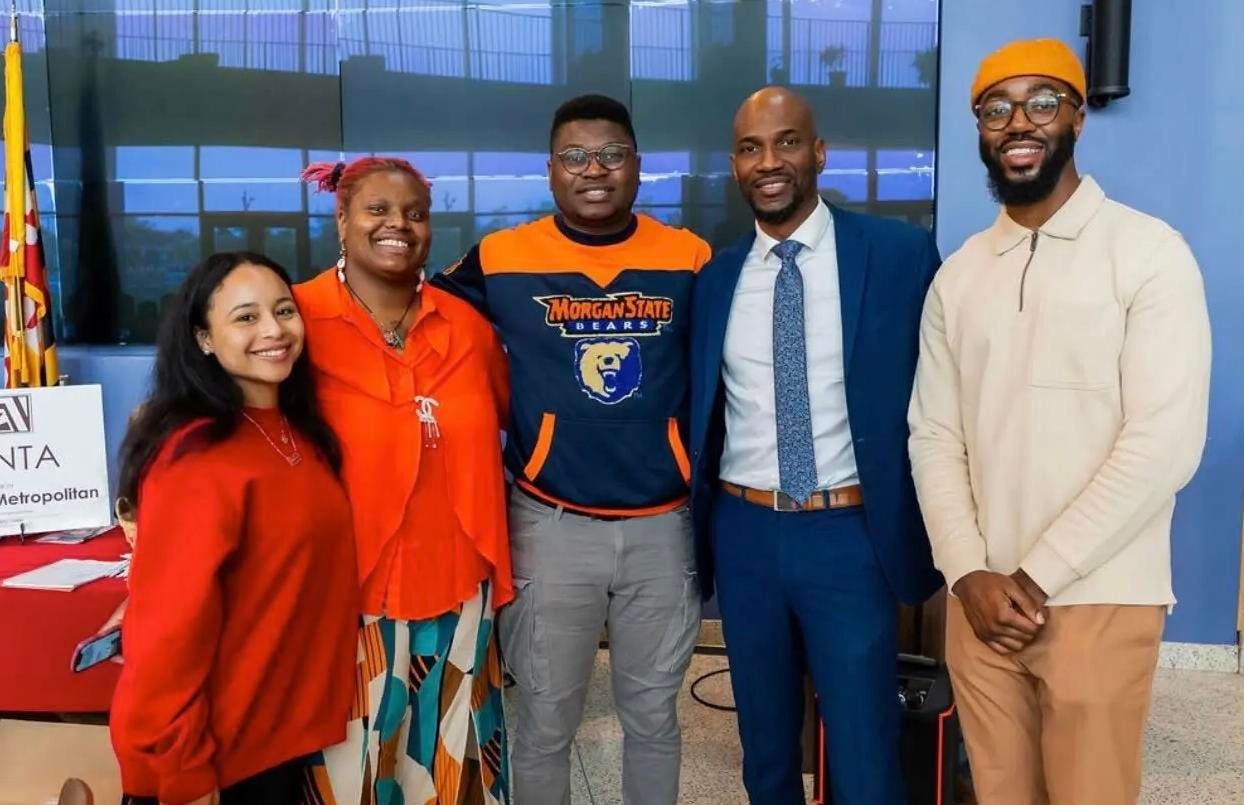HBCU founders at Morgan State University
Historically Black Clark Atlanta University graduate Miranda Perez is working to bring more attention to the entrepreneurial talent emerging from Historically Black Colleges and Universities (HBCUs). According to Perez, “I’ve long read the headlines about ‘MIT Student Founders’ and ‘Silicon Valley Founders’ creating innovation. It’s time for HBCU entrepreneurs to get the same level of recognition.” As program coordinator at the HBCU Founders Initiative (HBCUFI), she organizes the largest HBCU-focused pre-accelerator in the country.
HBCUFI, a nonprofit organization, has supported more than 1,200 startup founders who are students or alumni of HBCUs. The initiative is designed to guide these individuals as they launch their businesses. On August 19, 2024, HBCUFI announced a new partnership with Microsoft and the Walton Family Foundation to expand its pre-accelerator programming to 15 HBCUs, adding five new HBCUs to its network. New participants include Johnson C. Smith University in North Carolina, Philander Smith University and the University of Arkansas at Pine Bluff in Arkansas, and Jackson State University and Mississippi Valley State University in Mississippi.
This expansion will allow HBCUFI to host over 200 startup founders in its 8-week pre-accelerator programs, doubling its reach and impact. According to Marlon Evans, HBCUFI President, “Partnering with Microsoft and the Walton Family Foundation further affirms our mission at HBCUFI to ensure equitable access to entrepreneurial advancement at all HBCUs, regardless of geographic location.”
Program Coordinator, HBCUFI
Perez shared that HBCUFI’s approach includes “hybrid pre-accelerator programming, design workshops, and opportunities for founders to raise startup funds through pitch competitions.” She added: “Founders get a chance to develop their products and learn how to create a ‘risk-ready pitch deck for their startup.’ The program culminates in an on-campus competition that allows founders to compete for funding. HBCUFI founders have raised $2 million for their startups.
HBCUFI is important because the work fills a void of entrepreneurial opportunity between HBCUs and the startup world. As Perez noted, “The Ivy Leagues and many other institutions of higher education have long provided their students and alumni with access to the understanding of how to scale a startup through study routes, venture capital programming, and investment funds for students – what do you mean.” She lamented, “Opportunities of this nature, unfortunately, are limited in HBCUs, which ultimately can delay the creation of technology-based innovation on campus.”
Cover “How HBCUs Help Shape the Entrepreneurial Ecosystem.”
While there is growing support for entrepreneurship at HBCUs, research by Meco Shoulders and Don Cravins Jr. for the Alliance for Entrepreneurial Equity shows that many schools still face challenges. Their findings indicated that while 75% of HBCUs offer entrepreneurship courses, only 27% offer help securing financial support and only 6% have programs covering seed funding for startups.
Founders of Bowie State University
Jasmine Thomas, Senior Director, Innovation and Society Technology for Fundamental Rights at Microsoft, emphasized the role of colleges and universities in driving innovation, saying, “We know that universities are learning laboratories where ideas often turn into innovations that solve problems for people and communities.” Kim Davis, Senior Advisor and Delta Region Lead, Walton Family Foundation, added, “The HBCU Founders Initiative does just that, empowering students on their entrepreneurial journey. This innovative program not only provides essential resources, but will also stimulate local business growth.”
By expanding access to important resources, providing mentorship, and enabling a culture of innovation, HBCUFI not only empowers the next generation of entrepreneurs of color, but also challenges the status quo of those who end up leading the startup world. HBCUs have the opportunity to redefine what it means to be a founder in the 21st century.
The HBCUFI founders presentation event
Applications for the Fall 2024 Pre-Accelerator program opened on August 19 and will close on September 2.
#Accelerate #Future #Innovation #HBCUs
